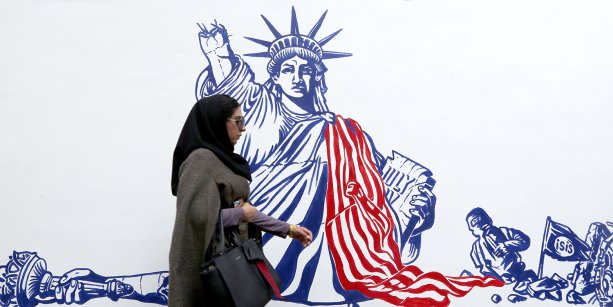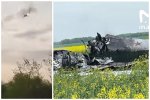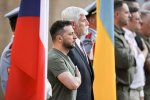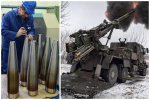Priznajme si to – sme vo vojne

English text below: Let’s face it – we’re at war
Dnešný americký nálet na letisko v Bagdade a zabitie iránskeho generálmajora Kásima Sulejmáního, veliteľa špeciálnych jednotiek Quds Iránskych revolučných gárd, no hlavne možná budúca odveta, napr. proti Izraelu, sú pripomienkou toho, že sme vo vojne. Nie Irán a USA. My všetci. Celý svet. Vrátane Ruska, Číny, Francúzska či nášho malého Slovenska. Sme v studenej vojne, ktorá sa ani zďaleka neskončila pádom berlínskeho múru v roku 1989 či rozpadom Sovietskeho zväzu v roku 1991. Naopak, zvýšil sa počet nepriateľov a s dramaticky sa meniacim svetom sa zmenil potenciál nebezpečenstva, stratégia či prostriedky boja.
Kým v druhej polovici 20. storočia proti sebe stáli hlavne dve superveľmoci, dnes je účastníkov studenej vojny omnoho viac a sú hlasitejší. Dnes zostali na zemeguli ako superveľmoc jedine Spojené štáty, na ktoré sa rýchlo doťahuje Čína. Rusko, Francúzsko či Pakistan sú hráčmi s jadrovými zbraňami, čiže tiež patria medzi tých najsilnejších. Silné sú regionálne veľmoci Blízkeho Východu a Izrael. O slovo sa hlási aj India, rastie sila Indonézie.
Tak ako boli zástupnými a „horúcimi“ konfliktami studenej vojny v 20. storočí americké operácie CIA, Kórejská vojna, vojna vo Vietname či sovietska vojna v Afganistane, tak sú dnes zástupnými konfliktami vojna v Sýrii, Iraku, Afganistane, Líbyi či konflikt na východe Ukrajiny. Menšie regionálne veľmoci, Irán a Saudská Arábia, vedu vlastnú verziu studenej vojny so zástupnými konfliktami medzi rebelmi, teroristami a armádami v Libanone, Jemene a, samozrejme, v Iraku a Sýrii.
Neprináleží mi súdiť, obdivovať ani haniť nikoho. Ako bežný smrteľník totiž nemám dostatok informácií, najmä tých ktoré sú tajné a vyhradené len pre tajné služby a povolané osoby. A, aj keď to nepriznajú, alebo si to nechcú pripustiť, nemajú ich ani zástupy internetových diskutérov, ktorí kopú za jednu alebo druhú stranu. Za západný svet alebo za krajiny staviace sa proti globalizácii a proti vedúcej úlohe USA vo svete. Nie som však naivný a viem, že tu nejde o nič viac a o nič menej než o geopolitiku, moc, vplyv, obchod, peniaze, ropu a ďalšie nerastné suroviny. Samozrejme, v nemalej miere ide aj o ľudské životy, mier a o spravodlivosť, ale tie sú len súčasťou zoznamu, nie jeho jedinou časťou. Koniec koncov dnes nie sú len krvavé vojny, ale aj napr. tie obchodné. Aj tie sú súčasťou globálnej studenej vojny.
Studenej vojny, ktorá, hoci sa nás Slovákov priamo ako ozbrojený konflikt netýka, drží vo svojich spároch celý svet. Jej súčasťou je koniec koncov, okrem následkov spomínaných obchodných vojen, aj terorizmus, ktorý môže udrieť kdekoľvek a kedykoľvek. A to som ešte nespomenul kybernetické útoky či hybridné vojny, ktoré sú už každodennou a všadeprítomnou realitou.
Dejiny bežia ďalej a práve dnes je umenie diplomacie a stratégie dôležitejšie ako kedykoľvek predtým.
Let’s face it – we’re at war
Today’s US raid on Baghdad airport and the killing of Iranian Major General Qasim Suleimani, commander of the Quds special forces of the Iranian Revolutionary Guard Corps, but especially possible future retaliation, e.g. against Israel are a reminder that we are at war. Not Iran and the USA. We all. Whole world. Including Russia, China, France or our little Slovakia. We are in the Cold War, which did not end with the fall of the Berlin Wall in 1989 or the collapse of the Soviet Union in 1991. On the contrary, the number of enemies increased and the potential for danger, strategy or means of combat changed with the dramatically changing world.
While in the second half of the 20th century mainly two superpowers stood against each other, today there are many more participants in the Cold War and they are louder. Today, only the United States, which China is catching up rapidly, remains on the globe as a superpower. Russia, France and Pakistan are players with nuclear weapons, so they are also among the strongest. The regional powers of the Middle East and Israel are strong. India is also trying to get its place, the power of Indonesia is growing.
Just as the US CIA operations, the Korean War, the Vietnam War or the Soviet War in Afghanistan were proxy and „hot“ conflicts of the Cold War in the 20th century, so are the wars in Syria, Iraq, Afghanistan, Libya or the conflict in eastern Ukraine today. The smaller regional powers, Iran and Saudi Arabia, are waging their own version of the Cold War with proxy conflicts between rebels, terrorists and armies in Lebanon, Yemen and, of course, Iraq and Syria.
It is not for me to judge, admire or insult anyone. As an ordinary mortal, I do not have enough information, especially that which is secret and reserved only for secret services and insiders. And, even if they don’t admit it, or don’t want to admit it, hordes of Internet discussants don’t have these information too. They are kicking for one side or the other. For the Western world or for countries opposed to globalization and the US leadership in the world. However, I am not naive and I know that this is nothing more and nothing less than geopolitics, power, influence, trade, money, oil and other minerals. Of course, to a large extent, it is also about human lives, peace and justice, but these are only part of the list, not the whole list. After all, today are not only bloody wars, but also e.g. business ones. They are also part of the global Cold War.
The Cold War, which, although not directly affecting us Slovaks as an armed conflict, holds the whole world in its grip. After all, it includes, in addition to the consequences of mentioned trade wars, terrorism, which can strike anywhere, anytime. And I have not yet mentioned cyber attacks or hybrid wars, which are already an everyday and ubiquitous reality.
History continues, and today the art of diplomacy and strategy is more important than ever.
















